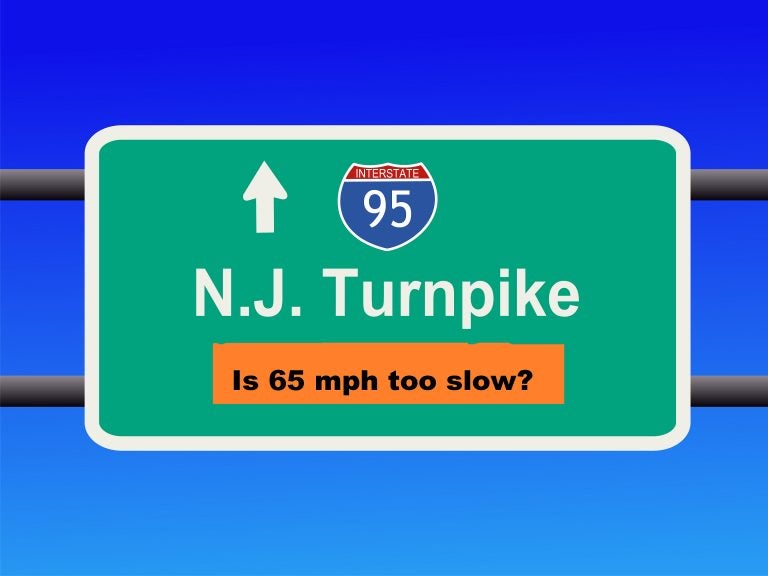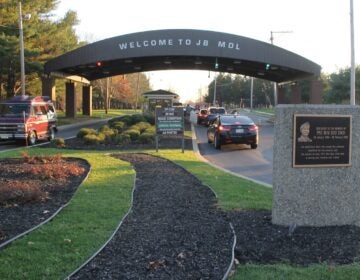New Jersey could raise the speed limit on the N.J. Turnpike to 75 mph

If you’re zipping down the Turnpike at a law-abiding 65 mph, you’re probably either in good company or eating the dust of those who push the speeding limits. But if one New Jersey assemblyman gets his way, every lane will feel like the fast lane.
Assemblyman Declan O’Scanlon, R-Monmouth, told WCBS 880 AM on Wednesday morning that he plans to introduce legislation that will raise the speed limits on the New Jersey Turnpike and Garden State Parkway to as high as 75 mph in some areas. After consulting with traffic engineers and multiple studies, O’Scanlon said that upping the speed limit will cause more drivers to travel at a similar speed, which will minimize the need to change lanes and thereby reduce the overall number of accidents.
Russ Rader, senior vice president of communications at the Insurance Institute for Highway Safety, dismissed the principle of O’Scanlon’s argument. He said that studies show that increases in speed limits are not a safety benefit but rather a safety cost.
“Speed limit changes—up and down—have been frequent in the U.S., so researchers have had plenty of opportunities to study the effects,” Rader explained to NewsWorks. “When speed limits go up, deaths on those roads go up. When speed limits go down, deaths on those roads go down.”
In response to the assemblyman’s suggestion that driving speeds would converge if the limits were increased, Rader disagreed. “People think that when you raise the speed limit you are accommodating high-speed drivers, but in fact you simply shift the higher speed drivers to a higher bracket. So people who are going 70 in a 65 mph zone now may be going 80 in a 75 mph zone.”
This isn’t the first time that O’Scanlon has been vocal about changing New Jersey road laws. In September of 2012, the assemblyman proposed a bill to increase the length of yellow lights at intersections. In the past month, he has spoken out about the state’s use of red-light cameras at intersections. He also co-sponsored a bill that Gov. Chris Christie signed into law last week that doubled fines for slower motorists who fail to stay on the right on New Jersey highways.
“It sounds like this lawmaker just wants to allow more people to speed,” Rader noted.
Increasing national speed limits was one of the initial intentions of the National Motorists Association back when it was formed in 1982, in the words of Government and Public Affairs Director Steve Carrellas. Carellas has been the head the New Jersey chapter for over 25 years. He tells NewsWorks that he’s always been an advocate of using the proper technique to set appropriate speed limits.
“The fundamental thing is that state law requires any speed limit change to have a traffic investigation study,” Carrellas said. Typically, these studies involve measuring the speed of free-flowing traffic and setting the speed limit within the 85th percentile speed—that is, the speed under which 85 percent of traffic is moving.
Carrellas recalled that when he first got his license in the early 1970s, the speed limit for parts of the Atlantic City Expressway was 70 mph, but ultimately argued that today’s speed limits should be set relative to traffic flow.
He estimated, “When you apply that [speed limit measurement] to parts of the Garden State or the Turnpike, you’ll probably get numbers higher than 55, possibly even 70 mph speed limits.”
WHYY is your source for fact-based, in-depth journalism and information. As a nonprofit organization, we rely on financial support from readers like you. Please give today.




